Tag: Hospice Services
Articles about the services offered by hospice providers.
Articles about the services offered by hospice providers.

Hospice care extends beyond end-of-life support, offering comprehensive services for patients with terminal illnesses. Early enrollment can provide months of valuable support, improving patient and family quality of life through specialized care and resources.

Explore the essential regulatory timeline requirements for hospice providers, covering everything from initial certifications to recertifications, nurse visits, and face-to-face encounters. This comprehensive guide helps ensure compliance and proper billing practices for hospice services.

Navigating hospice coverage and payment in the USA can be complex. This article breaks down the key aspects of Medicare, Medicaid, and private insurance coverage for hospice care, helping you understand eligibility, benefits, and costs.

In-home hospice care offers a sanctuary of comfort and support for terminally ill loved ones and their families. It brings medical care, emotional solace, and practical help to your doorstep, allowing patients to spend their final days in the warmth of home. Learn how hospice care can provide personalized support, ensuring dignity and quality of life.

This comprehensive guide empowers families to navigate care plan meetings for terminally ill loved ones. Learn the significance of these meetings, how to prepare, communicate your loved one's needs, and advocate for their best interests. Gain insights into recognizing when meetings are necessary and the benefits of regular care planning. Equip yourself with the knowledge to ensure your loved one receives personalized, dignified care aligned with their wishes.

When a loved one is facing a serious illness, it can feel like standing at a crossroads. Each path represents a different way to care for them in their time of need. It’s a moment filled with tough choices and deep emotions. This article thoroughly explains hospice care, its philosophy, and the benefits it provides to patients and families facing terminal illness. Learn about the decision-making process, the hospice experience, and how to navigate this difficult choice with dignity and love.
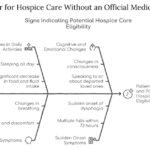
This article aims to provide information and guidance on qualifying for hospice care without an official medical diagnosis. We will explain hospice care, how to access it without a physician’s consent, what to expect, and how to make the most of it.

Navigating the intricate path of hospice care involves a nuanced understanding of the unique needs of terminally ill patients. The frequency and nature of nursing visits are crucial in ensuring optimal comfort and support during the final stages of life. This article will delve into the variations in hospice nursing visits, explicitly comparing the last two weeks to the preceding six months.
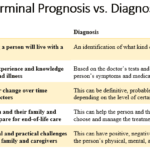
Learn the difference between a terminal prognosis and a diagnosis, and get practical tips and resources to help you and your loved one navigate this challenging time.
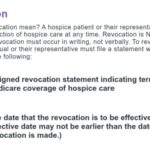
Understanding when and how to revoke services is crucial in hospice care. This article aims to shed light on revoking hospice services, why it may be necessary, misconceptions surrounding it, and the potential impact when patients or their families decide to restart hospice care.

Navigating interstate hospice transfers can be complex. This guide explores the process, challenges, and considerations for patients and families. Learn about Medicare regulations, coordination between hospice agencies, and how to ensure continuity of care when moving across state lines during end-of-life care.
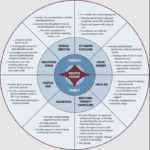
The end-of-life journey can be challenging and emotional for patients and their loved ones. A dedicated team of professionals provides comfort, support, and holistic care in hospice care. Each team member has a unique role, ensuring the patient's physical, emotional, and spiritual needs are met. Let's explore the roles of different hospice team members and how they contribute to your care journey.

If you or someone you love has a serious illness that cannot be cured, you may have heard of hospice care. Hospice care is a special kind that focuses on making the patient comfortable and peaceful in their final days. Hospice care also supports the family and caregivers emotionally and spiritually.
When a patient joins hospice care, they will have a special meeting with a hospice nurse. This meeting is called the post-admission visit. It is an especially important visit because it will help the patient and the family get to know the hospice team and learn more about the care they will receive.
This article will explain what to expect and what to ask during the post-admission visit. We will also provide tips and resources to help you and your loved one make the most of this time. We hope this article will help you feel more prepared and confident about the hospice journey.

An article that guides families through understanding and exercising their rights to choose the best hospice care for their loved ones, ensuring their final chapter is written with compassion and respect.
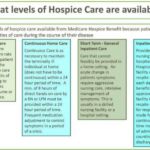
Caring for a loved one who has a terminal illness can be extremely rewarding but also particularly challenging. You may feel exhausted, overwhelmed, or isolated by the demands of caregiving. You may also feel guilty or anxious about taking a break from your loved one. But you deserve time to rest, recharge, and care for yourself. That is why hospice respite care can be a great option for you and your loved one.
Hospice respite care is a service that allows you to temporarily place your loved one in a facility, such as a hospital, nursing home, or hospice house, where they can receive professional care and support. You can use this time to do whatever you need or want, such as sleeping, working, running errands, visiting friends, or enjoying a hobby. Respite care can last up to five days at a time.

Discover how hospice patients can safely travel and create lasting memories with loved ones. Learn about essential preparations, medical considerations, and tips for a smooth journey. Explore ways to make the most of precious moments together while ensuring comfort and care during travel.
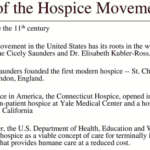
Discover the future of hospice care in 2024. This comprehensive guide explores cutting-edge pain management techniques, telemedicine integration, personalized care plans, and enhanced caregiver support. Learn how hospice services evolve to provide more compassionate and effective end-of-life care for patients and their families.
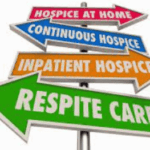
Caring for a terminally ill loved one is a challenging and emotional journey that requires strength, compassion, and support. As a hospice registered nurse case manager, I understand the importance of caring for patients, family members, and caregivers. In this article, we will explore the concept of respite care. This valuable resource offers rest and rejuvenation to caregivers while their loved ones receive specialized care in a skilled facility.
We will discuss respite care, its importance, Medicare coverage for respite care, the significance of skilled respite facilities, how often respite care can be provided, and tips for making respite care a positive experience for the caregiver and the loved one. Our goal is to empower patients, caregivers, and nurses by providing precise and concise information on this critical aspect of end-of-life care. Remember, you are not alone, and your love and dedication make a significant difference in the life of your terminally ill loved one.
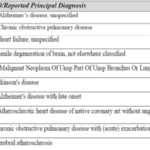
Explore the complexities of hospice care for terminally ill patients with multiple diagnoses. Learn how to distinguish between related and unrelated conditions, understand Medicare coverage, and navigate the challenges of providing comprehensive care while adhering to hospice regulations and ethical standards.

Losing a loved one is an incredibly challenging and emotional experience, and witnessing someone's final moments can be overwhelming, especially if you have never been through it before. As a hospice nurse with years of experience, I understand the importance of providing guidance and support during this time. In this article, I want to help prepare you for what to expect during the death visit and explain the role of the hospice registered nurse in the pronouncement process.

It is common for family members and caregivers who are not trained in end-of-life topics to be concerned about their loved one's oxygen concentration (SpO2 and sometimes also abbreviated SPaO2) reading from a pulse oximeter. Suppose their loved one refuses external oxygen or takes off the external oxygen. In that case, this often causes distress to the family and caregivers because they are focused on the numbers vs. the patients themselves. Hospice is about patient-centered care, and I would like to present four case studies to demonstrate how hospice manages this situation with compassion.

Hospice volunteer coordinators ensure hospice patients receive the compassionate care and support they need during their end-of-life journey. In this article, we will explore the responsibilities of a hospice volunteer coordinator, address common misconceptions about hospice volunteers, and share insights from Hope Eberly, Volunteer Coordinator for Grane Hospice.
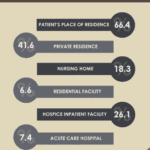
Deciding on end-of-life care for a loved one is challenging and emotional. One major decision to make is whether to opt for home hospice or hospice care at a facility. Both options have advantages and drawbacks, and understanding the pros and cons can help families make an informed choice. Here, we'll explore the pros and cons of each option and provide key questions that families should ask themselves to aid in their decision-making process.
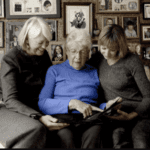
As an experienced hospice registered nurse case manager specializing in compassionate end-of-life care, I've had the privilege of working closely with terminally ill patients, including those battling dementia. Through years of dedicated service, I've observed a significant difference in the well-being and quality of life of dementia patients in family home settings versus facility-based care. In this article, we'll explore why patients with dementia often experience better outcomes in the comfort of a family home.